At press conference, Bloomington mayor Kerry Thomson says ‘other jurisdictions’ are sending homeless people to Bloomington
Mayor Kerry Thomson said at a press conference on Tuesday that other Indiana jurisdictions were sending homeless individuals to Bloomington, claiming that an influx of nonresidents was straining city services. She declined to specify which jurisdictions have sent people to Bloomington.
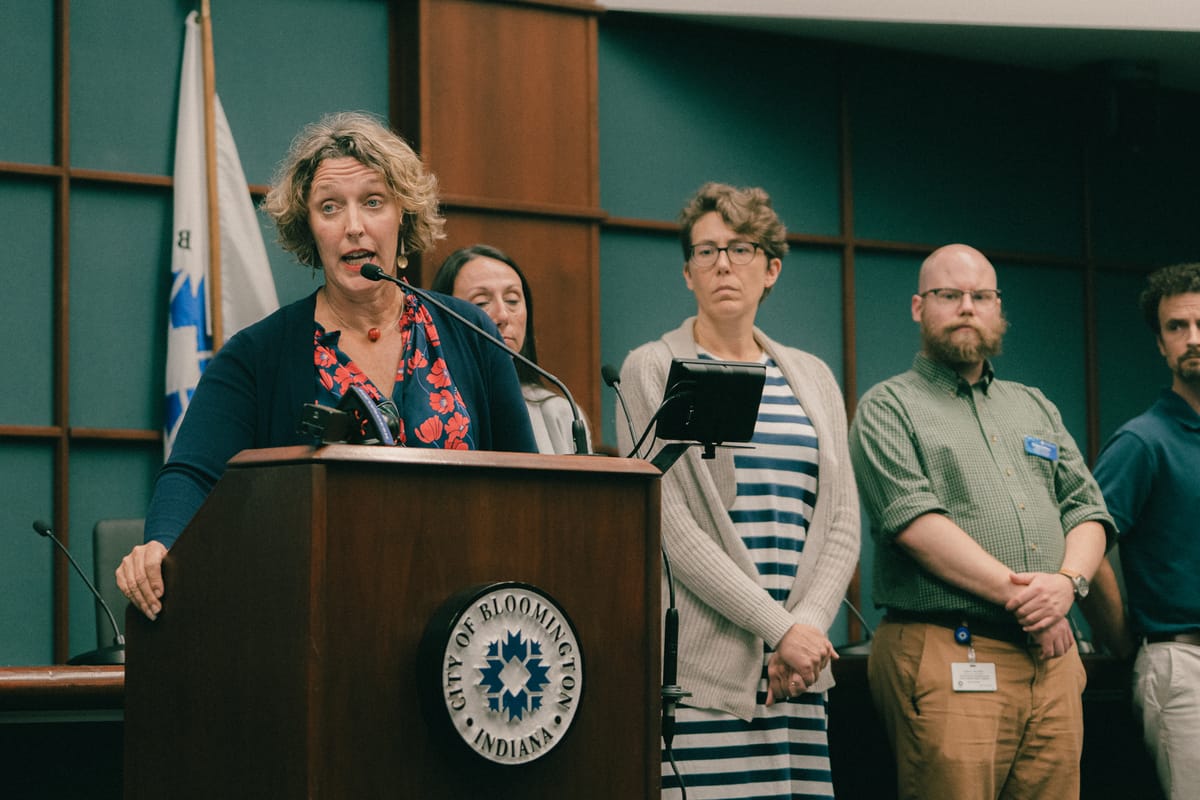
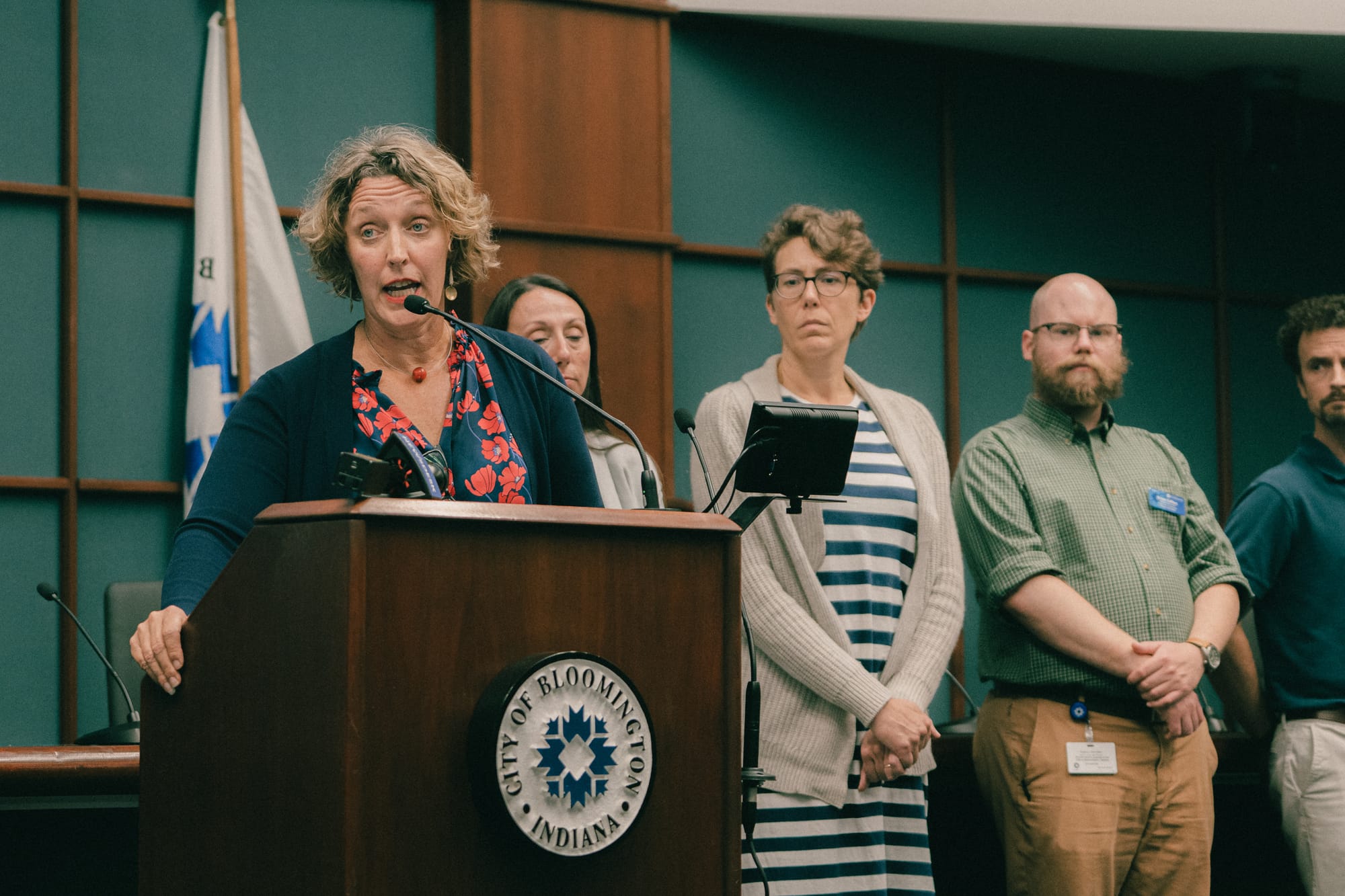
Mayor Kerry Thomson said at a press conference on Tuesday that other Indiana jurisdictions were sending homeless individuals to Bloomington, claiming that an influx of nonresidents was straining city services.
Thomson said Bloomington was “barely treading water with our homelessness” and urged jurisdictions outside the city and a regional housing district “to cease transferring individuals to Bloomington if they are not from here.”
She said that some people have come to Bloomington for resources—like rehabilitation or hospital services—that are unavailable in their own place of residence, then find themselves unable to return. Others have been brought to the city by sheriffs or municipalities, she said, but she declined to specify which jurisdictions have sent people to Bloomington.
The press conference was just the one of only a few that Thomson has held since she took office in January 2024, and it focused on housing—a topic that she campaigned on and describes as her “top priority.” Thomson—who ran, in part, on her experience as CEO of Habitat for Humanity of Monroe County—praised the array of nonprofits that help people experiencing homelessness in Bloomington.
But she criticized Heading Home, a coalition focused on improving housing access and responses to homelessness, for removing a residency requirement from its housing action plan. Heading Home is a partnership between United Way of Monroe County, the Community Foundation of Bloomington and Monroe County, the county and city governments, and the South Central Housing Network.
“Our community is not serving anyone well if we are not able to get our heads above water in order to truly end the cycle of homelessness for the residents who are from our … district,” she said.
Thomson claimed that isolation from resources in their hometowns was “leading to long-term homelessness for several individuals that we know.”
“They need to be close to the safety nets that they already have, and by dropping them off here, they end up in encampments,” Thomson said. “They lose any tie at all that they have to their families and friends who may be able to house them.”
The press conference came on the heels of two police actions in areas frequented by unhoused people—including eight drug-related arrests at Seminary Square Park on Thursday and another set of arrests near Crawford Apartments earlier Tuesday—which Thomson discussed at the press conference.
“We are taking a stand against the dealers in our community that really are preying on people who are vulnerable,” she said.
But Thomson criticized an executive order signed by President Donald Trump on Thursday that seeks to require local governments to step up enforcement of bans on urban camping, squatting, and loitering.
“We cannot effectively arrest our way out of the homeless problem,” she said.
Thomson said that details of the executive order are still forthcoming and that she remained unclear on exactly what it will require.
“I anticipate that it is illegalizing sleeping outside, and I’m not really sure how you enforce that,” she said.
Thomson also addressed plans for construction of the Hopewell neighborhood, located at the site of the former IU Health Bloomington Hospital, which have been in flux since the Bloomington Redevelopment Commission rejected the two bids it received for a portion of the development. Now, the city is working with a consultant, Flintlock LAB, to generate housing designs that can be constructed by several local builders—rather than a single firm.
“The huge scope of Hopewell is simply too much for many local builders and developers to take on all at once,” Thomson said. “This is a way to break it down so no one single builder has to do the entire project.”
She said Flintlock is conducting a limited audit of permitting procedures, but that she plans to conduct a city-wide audit to cut red tape for developers.
Thomson said she also hopes to see revisions to Bloomington’s unified development ordinance (UDO), which governs zoning in the city. David Hittle, Bloomington’s director of planning and transportation, said at the press conference that the UDO should be revised to accommodate denser housing for non-students.
“It makes it relatively easy to build a house, a conventional house,” Hittle said. “It makes it relatively easy to build a massive student apartment complex. It makes it relatively hard to build everything in between, which is where you really serve the middle class and the lower middle class—the people that work for the school system or work for the government but can’t afford to live here.”
The city council, advised by Bloomington’s Plan Commission, has the authority to change the UDO, subject to a mayoral veto.
Thomson also said on Tuesday that the city expects Crawford Apartments, which has faced legal scrutiny over poor physical conditions and frequent police calls, will “come back into compliance” with city requirements by an Aug. 1 deadline.
Crawford, which holds 61 permanent supportive housing units across two buildings, was notified in June that they are in default of an agreement with the city and in violation of Bloomington’s rental code. If the complex fails to comply with city code and implement an updated supportive services plan by Aug. 1, it could face rapidly mounting fines.
“I am very proud to say that yesterday, through inspections, we saw dramatic progress at Crawford,” Thomson said—indicating that Crawford seems poised to clear one major hurdle, the required inspection by Bloomington’s Housing and Neighborhood Development department.
The owners and property manager include Cinnaire Corporation, Crawford Apartments LP, and Continental Management. Beacon, Inc., provides supportive services.
[Note: The editor of The B Square is the spouse of Mary Morgan, who is director of Heading Home of South Central Indiana, which is mentioned in this article.]
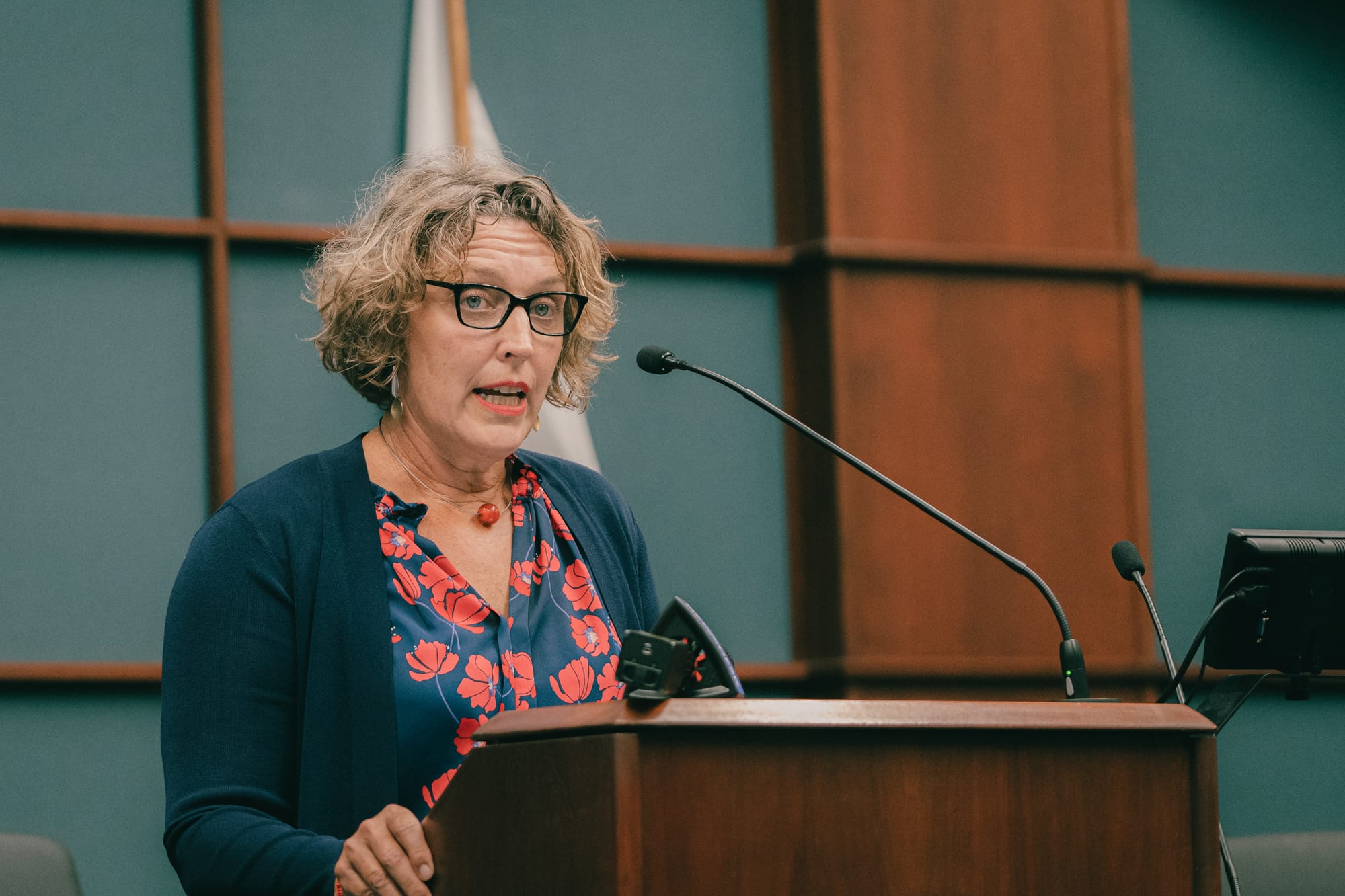
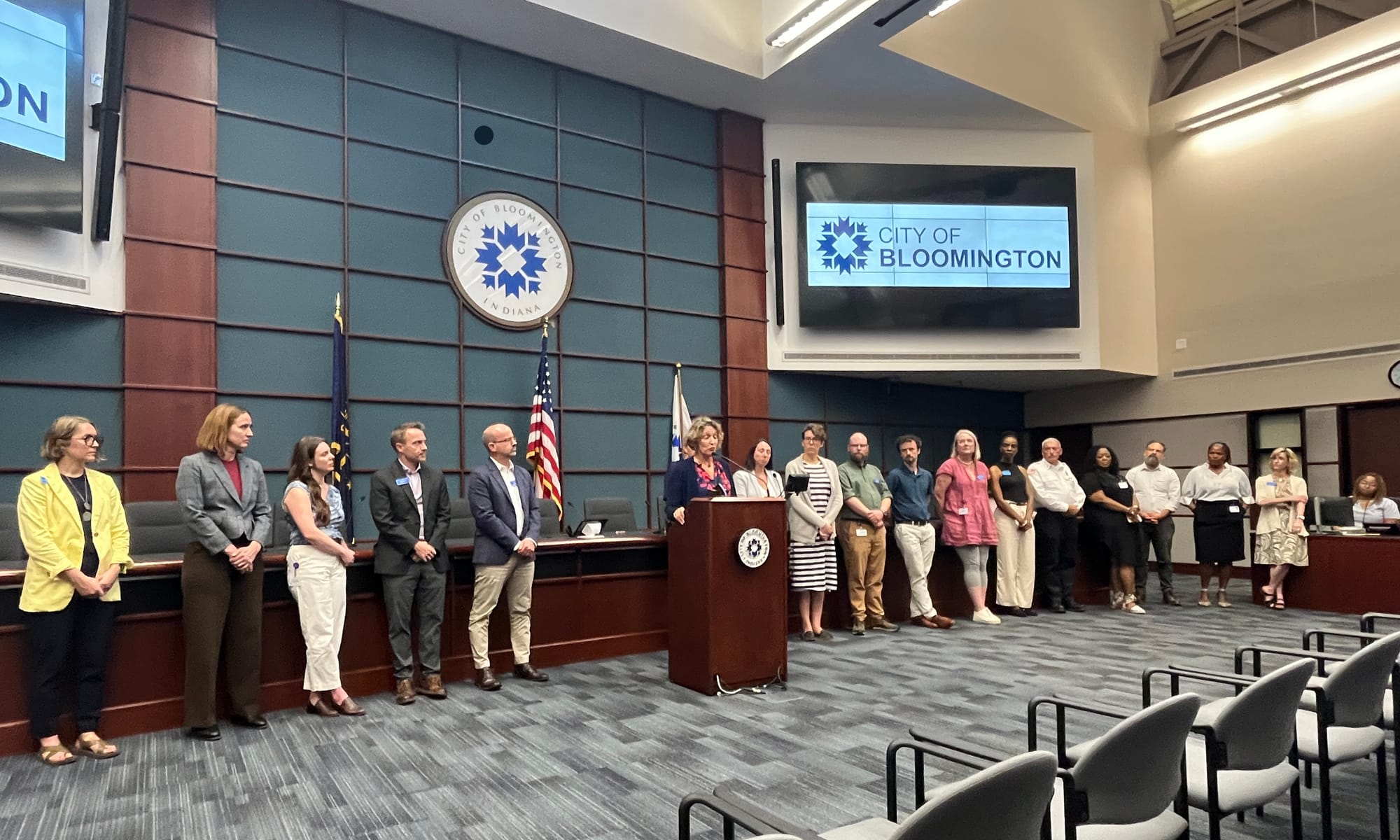

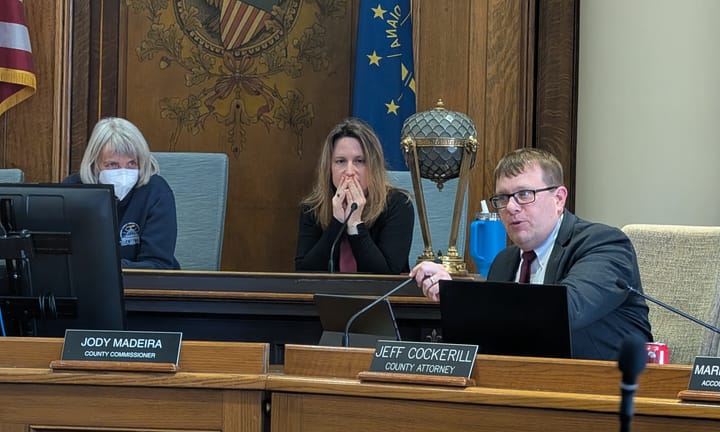
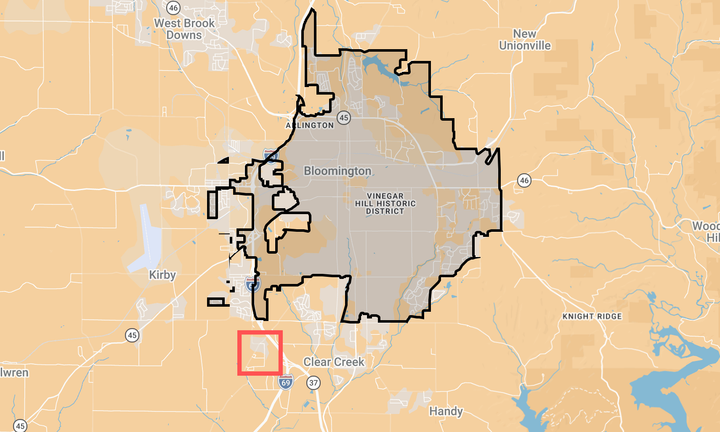

Comments ()